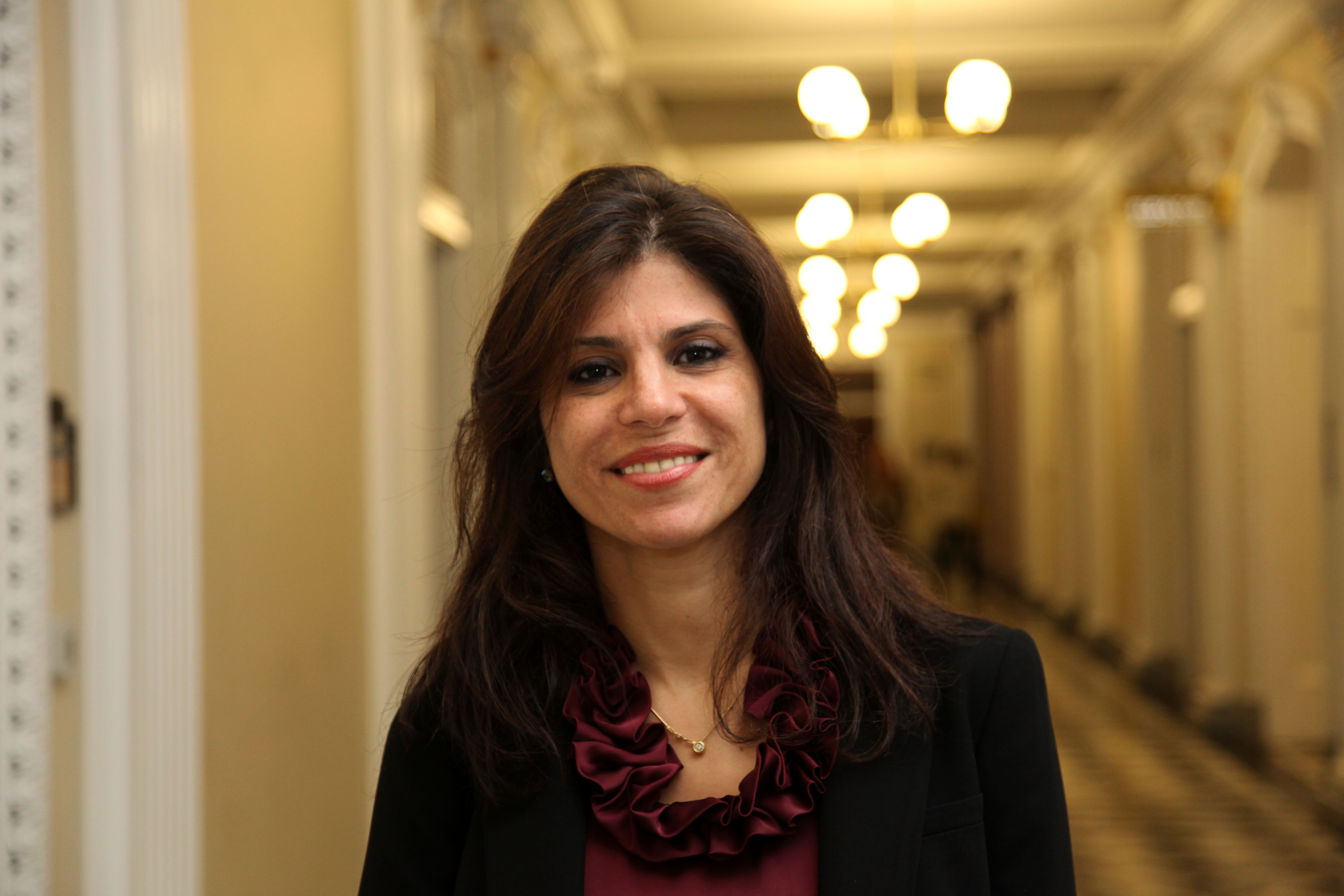
Ed. Note: Champions of Change is a weekly initiative to highlight Americans who are making an impact in their communities and helping our country rise to meet the many challenges of the 21st century.
On October 20, I was honored at the White House as a Champion of Change along with 13 other honorees from across the nation. I was honored as a Champion of Change for my work on child protection, domestic violence and sex trafficking. I was humbled to be among such an incredible group of advocates, all working to end domestic violence in their communities. I was in the company of some of my own personal heroes, and I look forward to the opportunity to continue to learn from their success.
My career started in the Middle East where I worked on the issue of child protection. Invariably, we have found that child abuse co-exists with domestic violence within families and communities. I came to the US over ten years ago to learn more about addressing both issues, and to learn from the successful intervention models that were already in use in this country. In 2006, I joined the Arab-American Family Support Center of New York (AAFSC) and have been privileged to work with dedicated professionals who develop and apply successful intervention models in the lives of women, children, and families every day.
At AAFSC, we have been pushing boundaries and leading the way in New York’s Arab and Muslim communities by addressing the sensitive issues of child protection, domestic violence, sexual assault, stalking and teen dating violence. All of our work is done within the cultural framework of Arab and Muslim communities, where these issues and related subjects are not part of the communities’ general discourse. Many victims in the Arab or Muslim community are not comfortable in seeking help from the police or other authorities. As immigrants, they may have had negative experiences with authority figures in their countries of origin. Our clients often come to us with feelings of isolation, distrust, or even despair, and they may consider our services to be their only hope of receiving the treatment and support they need and deserve.
Domestic violence exists in every community and culture, and at every societal level. While working to address this issue is difficult in all cases, the work is further complicated when culture, tradition, or societal values prevent victims from reporting abuse or from seeking and receiving help. Cultural considerations cannot be ignored when dealing with Arab or Muslim communities, or other immigrant communities; and cultural competency is a requirement in order to ensure the long-term safety of both the victims and their families.
In the communities that AAFSC serves, the lives of women and children are at risk not only from the abuser or batterer, but also from families who believe that a woman who leaves a marriage – including an abusive or violent marriage – brings dishonor and shame to her family. Victims and women at risk struggle with threats of honor killings, international child abduction, forced marriages, and ostracism from the community against those who speak out to protect and advocate for victims.
At AAFSC, we continuously develop effective models to create change, including important models that help remove blame from the victim and onto the perpetrator. Through workshops and training, we engage religious and civic leaders as we advocate to change the current narrative in the community. We have been successful in forming partnerships with local schools, hospitals, and community centers on behalf of victims and their families. In the past, our staff had to ask repeatedly for opportunities to speak about domestic violence in mosques, churches, and other setting in these communities; now, we are often invited to these places where we have been openly welcomed to educate and inform women, men, and families. Through outreach and partnerships we have formed with other organizations, more victims and women at risk of violence and abuse in the city’s Arab, Muslim, and immigrant communities have come to us for services, knowing that we can be trusted to protect the confidentiality and safety of those who report domestic violence or who need treatment and other services.
AAFSC’s model for effective intervention in New York’s Arab and Muslim communities has been exported to other states and to other countries, where the model can be adapted and used to address the needs of domestic violence victims in the context of culture, tradition, and religion. For Arab and Muslim communities throughout New York, the nation, and the world, the level of understanding and the attitudes towards domestic violence are changing for the better, and we are proud to be both innovators and participants in this positive momentum.
Lena Alhusseini is Executive Director of the Arab-American Family Support Center.



